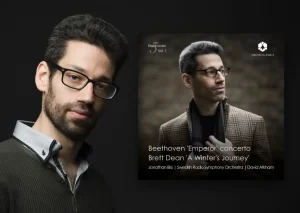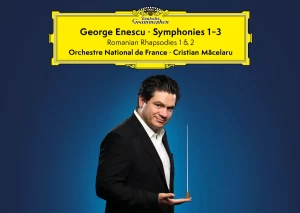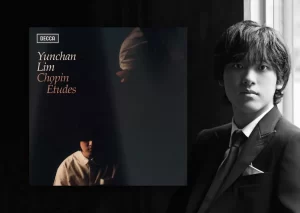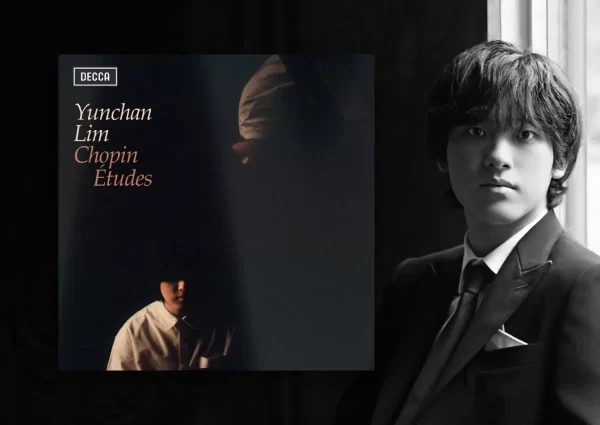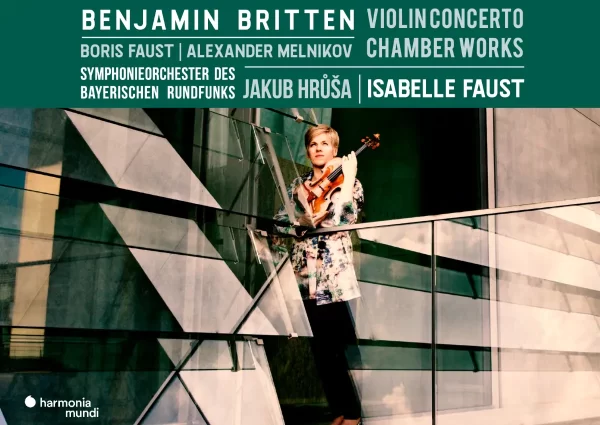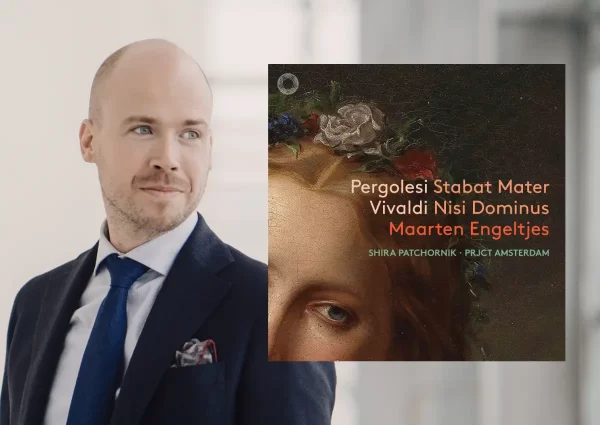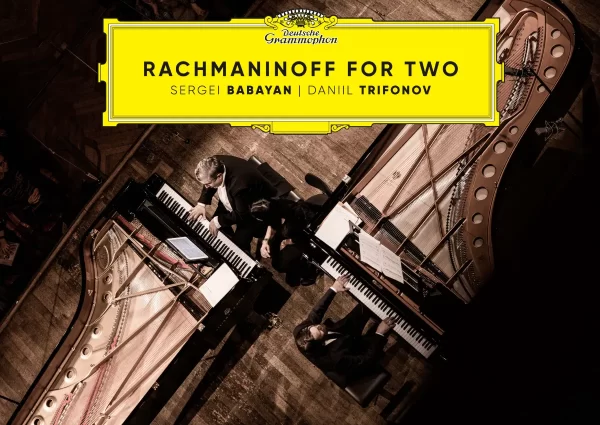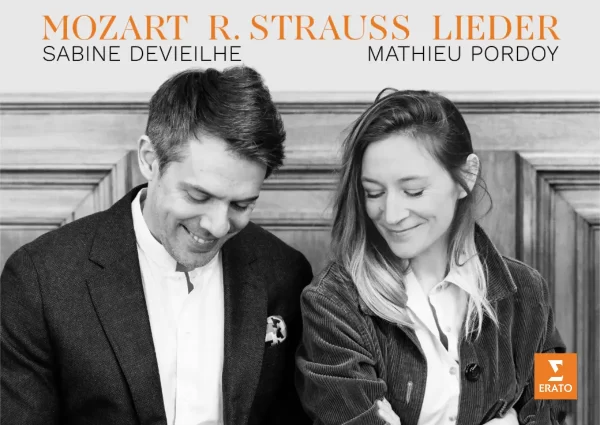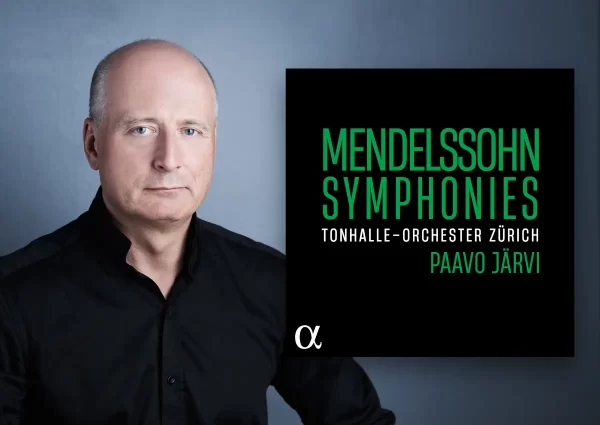This new disc of the piano concertos brings Alexandre Tharaud’s Ravel journey full circle. Having recorded an album of the solo music for Harmonia Mundi 20 years ago, he now finds himself in the good company of others who have completed the cycle, including Jean-Efflam Bavouzet, Jean-Yves Thibaudet, and Louis Lortie.
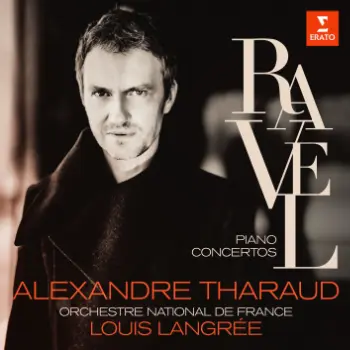
See offers for this album on Amazon.
A look at Tharaud’s discography shows a versatile and diversified artist: recent outputs reviewed by myself and my colleagues include Schubert Impromptus, French songs, and ‘theme’-type curations of French Baroque and cinema music. Across the board, I’ve noticed a signature suavity in his playing, a quality that would fit seamlessly in the dashing, jazzy, and universally loved G major concerto.
This G major concerto gives clear “off to the races” vibes (nearly 40 seconds shorter than the Zimerman/Boulez account) but this briskness aligns with the work’s naturally high energy. Serious kudos are in order for the trumpet’s fearless and perfectly articulated solo. The pianist’s stylishness is evident in sections like 0’41”: although he doesn’t have the bold swing that Thibaudet lends to his phrases in his performance with Charles Dutoit/Montréal, Tharaud brings out meaningful touches like unexpected secondary voicings. The quieter sections present a deliberate but interesting contrast between the slinky, jazzy orchestral material and the peppery staccatos from the piano. Though quirky, these provide rhythmic pushes forward. The high-octane moments are sure to excite: fitting brazenness and bite creates excitement, though I did think some of Tharaud’s accent placements were rather odd.
The long piano solo that opens the second movement (track 2) can be incredibly difficult to get right. Ravel doesn’t leave the pianist with a whole of textures to work with, so the performer must rely on phrasing, dynamics, and artistry to create something that, at its best, can be very moving. Tharaud contours the melodies beautifully, but again, some of the smaller rhythmic lilts feel unnatural and incongruous with the music. (I must say I prefer Zimerman’s version—while simple. elegant and smooth, it’s his tone quality that makes for a deeply personal account.) The return of the theme (6’15”) with the English horn is lovely. The wind player’s expressivity comes out through the sensitive changes in vibrato; Tharaud, too, shows excellent collaborative acumen as he matches his accompaniment seamlessly to melodic ebbs and flows.
Related Posts
- Review: Ravel – Piano Concertos – Céderic Tiberghien, Les Siècles
- Review: Schubert – Impromptus, Moments Musicaux – Alexandre Tharaud, Piano
- Review: Cinema – Alexandre Tharaud, Piano
Ravel wrote the Concerto for the Left Hand as a commission from pianist Paul Witrengenstein, who lost his arm during WWI. The much darker undertones are apparent from the start in the lowest registers of the orchestra and austere contrabassoon solo. The performers indeed paint the picture of a barren, sinister landscape. Ravel’s mark as a master orchestrator comes through his vibrant use of instrumental colors with which the ensemble creates a dramatic and persuasive narrative.
By certain accounts, Wittengenstein mentions that Ravel himself used two hands to play certain portions of the concerti during a visit; such a necessity isn’t surprising given the technical ferocity of the work. Tharaud’s command is impressive throughout: a confident entrance shows a heady sound we hadn’t really heard in the G major. The more lyrical sections are just as good, with finely voiced chords that outline the jazz-influenced melody. Where the reference to the war is most programmatic is the Allegro (track 5): the martial horn blasts and marching rhythms are precise and unrelenting as are the pianist’s crisp chordal motifs.
Ravel does include some moments of respite, however; 1’46” is especially nice. Here, the pianist’s shimmering filigrees create a backdrop for the high winds, whose melodies wouldn’t be out of place in a ballet. The interchange of musical ideas between Tharaud and the Orchestre National de France under Louis Langrée is a constant delight in this reading (more than in the Concerto in G), helped by the detailed recording engineering.
Tempo I (track 6) has meteoric growth and a cinematic feel that fuels tension and anticipation. What’s ironic is that the arrival—an extended cadenza—is more quiet than anything. From the plethora of cascading arpeggios rises a finely-voiced melody. One should hardly complain given that the pianist is doing everything single-handed, but the only fault I perceived was that the dynamic levels are too consistent. Bavouzet’s performance really hits the mark in this regard with plenty of nuance and breathtaking shades of piano dynamics, all which evoke a welcome feeling of introspection.
Roger Nichols’ well-written liner notes highlight illuminating musical connections between the concerti and other compositions that inspired them. The sound engineering, however, could be better: on several occasions, I found either the soloist or orchestral overly favored.
While the G Major Concerto may not take the place of other reference points, I enjoyed the Left Hand very much for its dedicated and persuasive performance. With a refreshing addition of a vibrantly conceived version of de Falla’s ‘Noches en los jardines’, this is a solid showing from Tharaud, Langree, and the French National Orchestra. Gladly recommended.

Ravel – Piano Concertos
de Falla – Noches en los jardines de España
Alexandre Tharaud
Orchestre National de France
Louis Langrée – Conductor

See offers for this album on Amazon.
Recommended Comparisons
Zimerman | Argerich | Yuja Wang | Michelangeli
Included with an Apple Music subscription:
Latest Classical Music Posts
Read more classical music reviews or visit The Classic Review Amazon store
Follow Us and Comment:
Get our periodic classical music newsletter with our recent reviews, news and beginners guides.
We respect your privacy.


